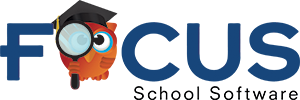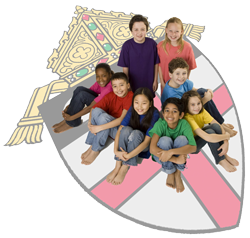College Planning Tips for High School Students Grades 9-12

College Planning Tips & Timelines for Students Grades 9-12
The college preparation and admissions process can feel intimidating and may leave many students and their families with a LOT of questions. From choosing the right classes that align with college goals to knowing the best time to take standardized tests, conduct college visits, seek financial aid and apply, it can all seem overwhelming. The good news? When you break down some of the key steps across each high school grade, the process becomes much easier to manage for parents and students.
At York Catholic Middle and High School, helping our students in grades 7 to 12 and their families prepare today to reach tomorrow’s goals is at the heart of our personalized approach to college and career preparation. Our counselors have compiled the top tips and timelines to help take the guesswork out of college prep and to empower students at every grade level (and their families) with a roadmap to reach college admission success.
Check out the links below to quickly access each grade or download the printable guide here.
Grade 9: College Prep Tips for Freshmen
High school can be a big change for students. Being proactive to help ease the transition and set students up for success from the start can have significant benefits. Now is the time to explore interests and take on new experiences that can help shape future goals.
- Choose the courses and academic opportunities that fit current goals and interests.
- Select an organization style and tools and stick to a study schedule.
- Build a relationship with guidance counselors.
- Participate in extracurricular opportunities and school activities that align with interests.
- Start the conversation at home about post-high-school goals, including discussions on paying for college.
- Consider career exploration opportunities, like shadowing, volunteering, and interning, which can provide first-hand experience and insight on future career interests.
Begin keeping a “resume”/overview of your high school experiences and achievements as they occur and update it throughout your high school career
Grade 10: College Planning During Sophomore Year
This year is an opportunity to refine and define your future goals and dial in your academic and extracurricular pursuits to support those priorities.
- Take available AP and other college preparatory courses that are a fit with future goals identified so far.
- Continue to focus on academics and maintaining good study habits.
- Stay active in extracurricular and school activities.
- Continue conversations with guidance counselors about college and future goals.
- Consider taking the PSAT test.
- Start researching colleges and making a list of what is personally important in a college experience.
- Write down potential future paths and personal goals and refine career exploration activities (shadowing, volunteering, interning) to match up with those choices.
Grade 11: College Planning for Juniors
The college prep and investigation pace dramatically quickens this year, as milestones become much more defined and time-sensitive. Staying ahead of deadlines and being prepared for what comes next can dramatically reduce the stress associated with the process.
- This year’s grades really count, and so does attendance. Get help from teachers and ask for extra support when needed.
- Continue to consider, research and evaluate careers, college majors, and potential post-secondary options.
- Visit college campuses and take college tours. Make a point to visit schools of interest and speak with students who attend those schools (seek out those with similar majors to your career interests).
- Attend local college fairs.
- Try to narrow college choices to five or less institutions and request application materials from those schools online.
- Research scholarship options and compile a list of opportunities.
- Take particular note of the deadlines for scholarships and early admissions to schools (typically very early in the fall of senior year).
- Consider a dual enrollment opportunity for senior year. Earn college credit that counts towards high school AND college at a discounted rate!
- Know what tests are required by the post-secondary institutions under consideration (SAT I, SAT II, or ACT).
- All juniors will take the PSAT at their school in October. Parents and students should discuss results with their school’s guidance counselor. Practice on the College Board website is also encouraged.
- Take the SAT I in the spring of junior year. This test can be taken more than once to improve scores. Visit the College Board website for more information. Juniors are encouraged to take at least one college admission test during the spring of junior year. Register early, at least six to eight (6-8) weeks ahead, for the SAT or ACT. Those who wait run the risk of their preferred test center filling up.
Grade 12: College Admissions Steps for Seniors
The final stages of the college application and admissions process can seem intense, but preparation in previous years and an understanding of the timeline for key steps can make a big difference.
September through December
- Continue to gather information on colleges of choice and make final visits.
- Narrow the list of college application choices in preferred order of acceptance. Experts recommend having four to eight (4-8) choices: at least one to two (1-2) “sure bets,” two to four (2-4) “target choices,” and one to two (1-2) “reaches.” This number may vary for each individual. Remember that some applications will require a fee.
- Keep grades as high as possible and remember that attendance really does count.
- Explore college and standardized test websites online: SCOIR, College Board, ACT and Education Planner.
- Register to take or retake the SATs and/or ACTs.
- Determine whether SAT Subject Tests are required by intended college(s) – and plan to take them no later than January of senior year.
- Check with school counselors for information regarding college visits to school as well as local college fair opportunities.
- If letters of recommendation are needed for any college in consideration, request them from teachers, coaches, counselors and other mentors.
October through December
- If any targeted schools have rolling admissions, the EARLIER the application is submitted, the better. Some majors and programs require an early application, such as nursing, physical therapy, and physician assistant since there are limited spots for incoming freshmen.
- The early application deadline at most colleges and universities is October 1. Students who submit their applications by this date usually receive acceptance details by December 31. Students who do not apply for early decision, but plan to attend college, should apply no later than May 1. Acceptance details are usually received by June 30. Please note, these dates vary by college and university.
- Begin collecting and thinking about financial aid information.
- Arrange to send first quarter grades to schools that request them.
- Complete the Free Application for Federal Student Aid (FAFSA) after October 1 to qualify for college financial aid.
January and February
- Take any necessary SAT Subject Tests (before the end of January).
- Submit mid-year reports to the schools that request them.
- Continue researching and applying for national and local scholarships.
- Utilize College Board’s Scholarship Search Engine through BigFuture.
- Utilize the US Department of Labor’s Scholarship Search Tool.
February through May
- Notify schools about decisions.
- Submit a deposit to the college/institution you will attend.
- Write letters to the schools not selected.
- Continue to build study skills and keep grades as high as possible.
- Save copies of senior projects, research papers and other completed assignments that may be helpful in college as resources or to use in a portfolio when applying for student activities, internships, etc.
Get the Printable Guide
Click the button below to download the printable guide featuring the tips above.
Planning ahead and understanding the steps and important milestones along the college evaluation, application and admissions timeline can help streamline the process for students and their families. At York Catholic (we call it YC), over 90% of our graduates move forward to study at higher education institutions each year, with each graduating class collectively receiving offers for over $10 million in scholarships. Their achievements are rooted in a personal approach to college and career counseling that focuses on helping each student map out his or her personal goals and set and follow a unique path to achieve them.
If you are interested in learning more about the YC approach to personalized college preparation support or have questions on the college application and admissions process, get in touch. We look forward to learning about your student and family college goals and how we can support the journey to achieve them.






